We Take a look at the best and worst of Season 5. Especially, that mid-season’s righteous cliffhanger
Since its first season, Lucifer has always been a series about desire. What innate drives a person secretly holds within themselves, and what it would be like to utter these truths aloud. Set in the city of Angels, Lucifer is an odd mix of one-part angels and demons, the other part, procedural cop drama.
The Devil — played by a charming Tom Ellis doing his best impersonation of David Bowie — is in this show, an irresistible tempter whose nature is to reveal human desire. An angel whose debonair is stressed through his audacious conviction, self-confidence, and poise. This is why Season 5 of Lucifer begins in a somewhat tragic arc: seeing the devil reign on his throne alone in his own self-isolated hell. The King of Charisma, now squandered in loneliness.
Whereas Season 4 of the series was a step-up in terms of raising higher-stakes and breaking the rules primetime never allowed them to make — which Netflix was more than happy to oblige — this season took a step back towards their early season’s formula. The show moving to a more case-of-the-week appeal again with lower stakes and surprisingly, a lot less controversy. The demonic showcasing and sexuality are dumbed down compared to last season. Which isn’t terrible per se, it’s just odd given the premise and what last season was pivoting towards a more uncensored Lucifer seeking to break new grounds.
Still, there is a lot of promise for more in part two.
Warning: Spoilers from here on out for Lucifer Season 5
This Season is About How We See Ourselves

This season begins with Lucifer, wanting an escape from his hell but not realizing, how much of it is self-imposed. He’s observing the torture of an old friend, Lee Garner. A man whom Lucifer left his money and gold. Inevitably, like much of the series episodes prior, Lucifer tries to project his personal issues upon Lee and of course his ‘case of the week’; giving Lee a reprieve from torture in order to solve his murder. He investigates how Lee’s wealthy yacht and champagne living lifestyle was cut to an end. Though it’s mostly a convenient measure for Lucifer to look at himself and harshly judge how he’s dealing with his own personal issues.
Mazikeen (Leslie-Ann Brandt), meanwhile, is disheartened by Eve’s sudden departure from last season. Attempting to fill her void she voluntarily begins working crime scenes in Lucifer’s steed. She is also drinking heavily with Chloe, who is obviously still reeling from the loss of Lucifer in her life; both women, reject the advances of all men that approach them.
Now, the other women in the series aren’t faring too well either. Ella Lopez (Aimee Garcia) is emotionally hurt how Lucifer ghosted her: him choosing to head to Florida to help with the family business (is this a Godfather reference?). She’s also trying her best to defy what she sees as fate, trying best to leave the criminal life of her family behind her; yet still coincidentally and repeatedly, keeps falling for and hooking up with all the bad boys. Something we see explored in part one.
Elsewhere, Lucifer’s therapist and Amenadiel’s baby mama, Dr. Linda, is going full helicopter mothering out of fear that her baby, Charlie, is going to be special. Because it’s hard to be a parent, especially if your child is a celestial being. Linda goes all out taking special classes, STEM classes, and art appreciation — just the full-works for a newborn, all in a classic case of helicopter mothering. Which is odd because it’s something which Linda should realize is happening given her psychological background.
Though at least her journey is somewhat relatable, Amenadiel (D.B. Woodside) is trying to go the opposite direction. Instead of raising Charlie to be the best to keep him safe, he’s trying to make the world safe for Charlie. Taking down drug dealers and really going out of his way to, in his own strange way, smite the evils away from the world for his son.
The only person who’s seemingly together is Dan (Kevin Alejandro), who’s gone full self-help after losing Charlotte. He’s helpful to all of his friends… At least, early on.
Guilt Is Its Own Punishment
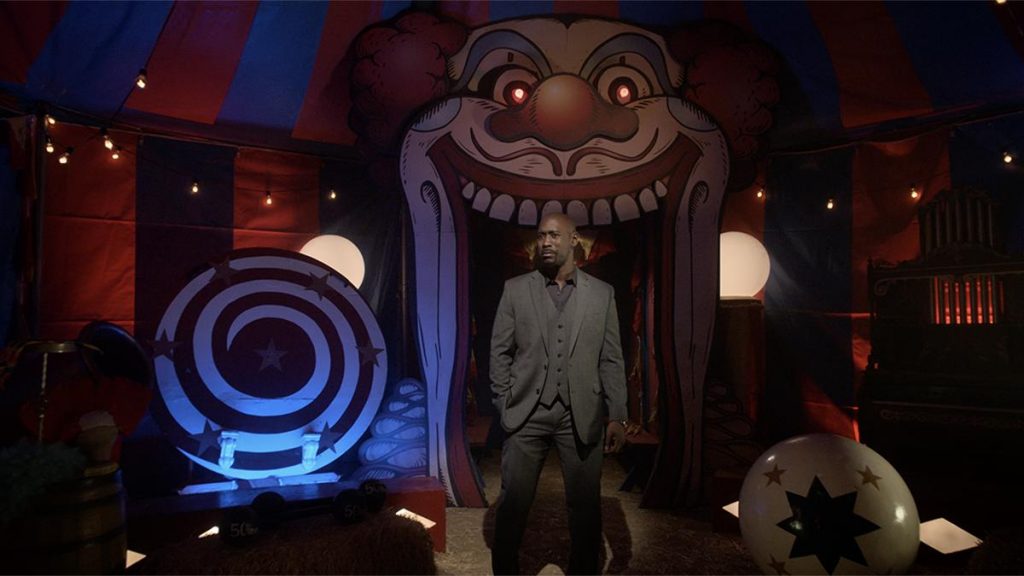
In the early episodes, the focus lies on the guilt of Lucifer. He feels awful about how he left things on Earth, and more than anything else has spent several millennia now (time moves slower in hell) thinking about his beloved detective, Chloe Decker (Lauren German).
And though Hell is its own self-punishment, not all is well back on Earth. It doesn’t take long for trouble to brew on Earth. Because the early hook into this season is that there’s a Lucifer doppelganger, as Michael comes into play, and a mistaken case of identity soon ensues focusing on ruining Lucifer’s former life in LA.
Still, it’s a different type of hook that feels more akin to the show’s early seasons. Most of the early season conflict stems internally from guilt about what each character is going through. Where it somewhat lacks, is that it’s not all-that-driven externally.
Whereas last year’s storylines tied together, these episodes still feel compelling, yet also, disconnected as the stakes are often let go early-and-often. The dramatic tension wrapping up nicely almost every episode in a nice little package. Case solved. Live moves on. With the only real thread tying these episodes together being inner character guilt and insecurities that need addressing and resolution. Given the weight of last year’s finale, it’s an odd choice of storytelling. Especially, because much of what was working for Netflix’s new version of Lucifer seems to go astray. The season-long story arc feeling oddly separate from what’s happening.
Probably my biggest qualms this season of a missed opportunity is that we learn Hell is not what it seems and is mostly: a self-imposed guilt trip. A topic which I wish they’d stayed on before seemingly abandoning it behind by midseason. I also think that the demons of returning should logically be brought back given our angels’ time away from hell, yet the storyline almost ignores that entire imposing plot point established last season.
Likewise, from what I’ve read, fans seem to be divided over the Michael storyline this season.
Witness, Me Michael
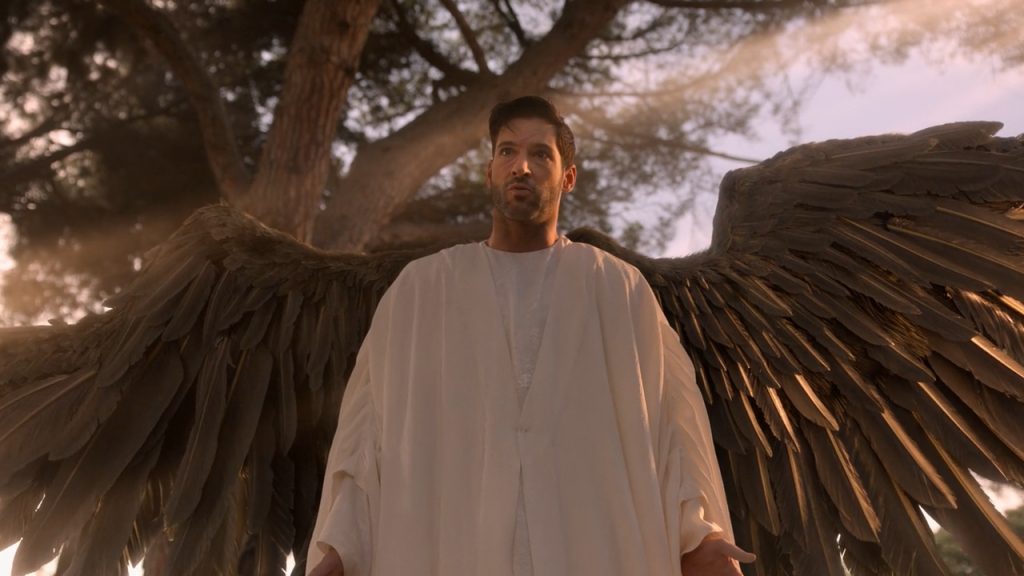
Michael, meanwhile, serves as the villain for season 5. Based on the greatest of the Archangels, Michael looks physically in appearance just like his twin brother lucifer; yet, is in almost every way: Lucifer’s personality counterpart. Also, conveniently played by Tom Ellis.
Whereas Lucifer is poised and confident, Michael is slouched shouldered and insecure. He brings out the worst in people’s fears, while Lucifer brings out their deepest desires. Where Lucifer charms others with the truth and gets people to share their wants, desires, and even dreams — Michael mostly seeks out other’s greatest fears, sowing doubt into their head by using lies and insecurities.
He is also the most powerful figure in Heaven outside of God himself, though has always felt in the shadow of his own brother, Lucifer. Michael also has an American accent — a creepy feature that Tom Ellis — intentionally or not — brings out to contrast with his beloved devilish counterpart. A gesture which, in all honesty surprisingly works, as we’re so used to Tom Ellis’ British charm.
Sometimes It’s Best Not to Try so Hard
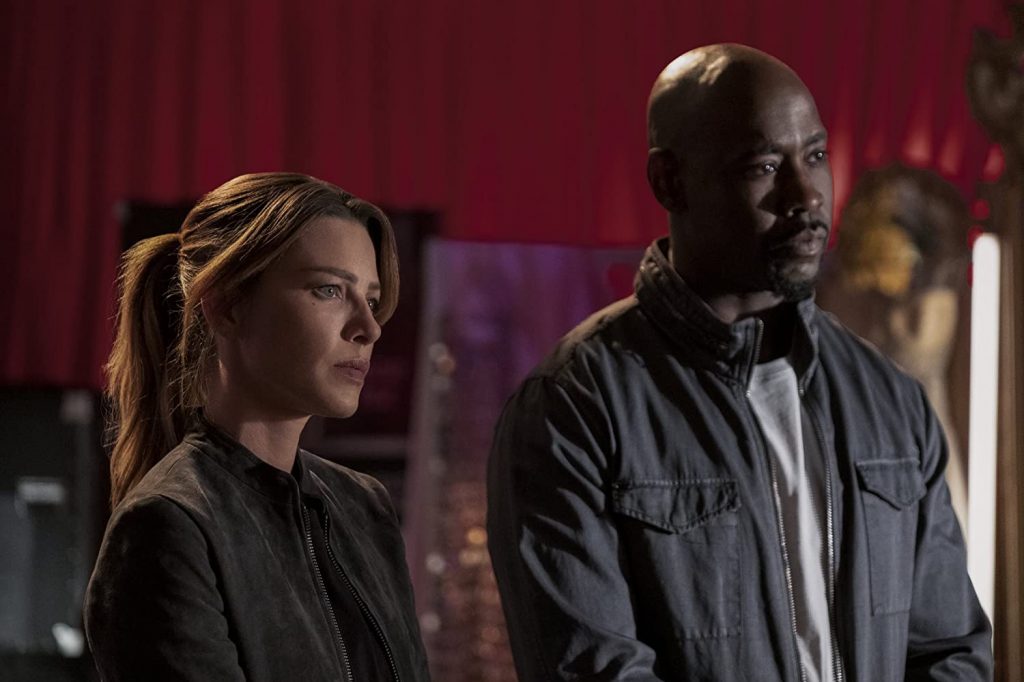
The best parts of Season 5 are during its high-concept middle episodes. This may seem like filler in comparison to last year’s story, though is still very funny, and arguably the best parts of the fifth season.
Some highlights about the middle batch of episodes are that we get a lot of meta-jokes that see Lucifer as a show, somewhat poke fun at itself. There’s an entire episode featuring Lucifer and Decker on the backlot of their own show, though in this case, it’s to solve a murder on the set of “Diablo”. Which is coincidental, a TV show inspired by Lucifer’s life (at least, that’s how he pitched it to the showrunner) featuring embellished and oftentimes outright silly, versions of the Lucifer crew as different actors. There’s also a lot of self-reflection in that episode as our main cast watches fictionalized versions of their lives based around Diablo (Aka Lucifer) — bringing out some of their flaws, but also, funny interpretations of how they themselves. With Maze’s character being a strong and powerfully large Black Man, and Decker’s being… a stripper-turned detective. All for as equally hilarious as it is sexy: meta-comedy and premises.
We also get a detective Ammenadele episode where we see him and Chloe try their best at emulating her partnership with Lucifer — much to the Devil’s disgust — all based around a murder at a Nunnery. Where for some hilarious reason, the Nuns can’t seem to keep their longing affections off the Angel. To top it all off, we get a sweet story time episode where Lucifer shares with Trixie (Chloe’s daughter) a noir-themed detective episode about how he came about to own the ring of Lillith. Along with a DJ clubbing episode that really builds sexual tensions between Chloe and Lucifer.
All of this makes for some interesting midseason filler, though somewhat lacks the drive and direction of seasons previous. There’s also this odd convenience introduced: that God doesn’t think anyone needs to watch hell. A notion that irks me as it invalidates almost all of the “Lucifer, go home!” tension the series has built over five seasons.
The most encouraging thing by mid-season though is seeing the ensemble receive more airtime and story arcs of their own (even if it often meanders). However, it seems most of this season was really meant to focus on one thing: Chloe and Lucifer and their new relationship.
Love is in the Air
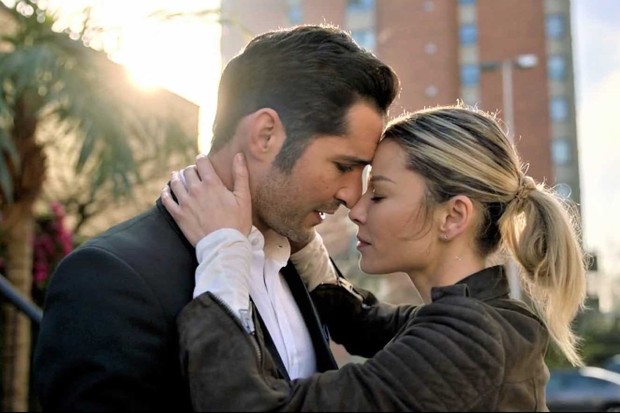
When it comes to Decker and Lucifer, it’s encouraging that the showrunners finally decided to pull the trigger this season. The only issue is how it’s dragged out in the first initial episodes.
There’s a lot of playful teasing and a lot of implied, “I love yous” which aren’t actually stated but expressed in-action. Also, between the copious amount of times we’ve seen the two put themselves on the line for each other, it’s odd how dragged out their love story is this season given that the trust-building has already been laid out for years. However, it is satisfying to see the overthinking and longing double-takes of the will-they or won’t-they romance finally payoff in typical Lucifer style.
Sex… Yes, I’m talking about sex, babies.
It finally happens, much to the chagrin of most of the cast of characters (particularly, Ella). Yet, instead of exploring this new phase of the relationship, Lucifer and Decker immediately go askew into pivoting right back into the issues that made it so difficult for them to get together in the first place: insecurities, trust, and feelings of helplessness in the face on one another.
Decker, with her inability to fully trust Lucifer, which is caused by a sense of inferiority and fear over her agency in God’s grand scheme, and of course Lucifer, whom with his strange power fluctuations and constant reassessment of his narcissism: lacks a degree of human understanding. As the season drags on the two constantly dance with the same fear. A mysterious anxiety about how loving someone means being vulnerable with them. Which is basically the foundation of dating someone?
It eventually leads to a funny plot point where Lucifer’s powers are temporarily exchanged to Decker, while he tries taking on her superpower (her detective skills). The conclusion is that basically, somehow, loving Chloe makes Lucifer vulnerable. A sweet sentiment… had it not been dragged out for hours.
See, the biggest problem with the romance is it’s not that romantic of a story? There isn’t too much of a payoff for either characters thus far, which is something the season is definitely playing with in terms of sowing doubts of their love. In the process, we also lose a lot of the Michael plotline which is heavily sidelined to stroke the fears that maybe, much of what we seen is Michael sowing doubt. Though it’s difficult to tell because it’s underdeveloped.
Love is Death
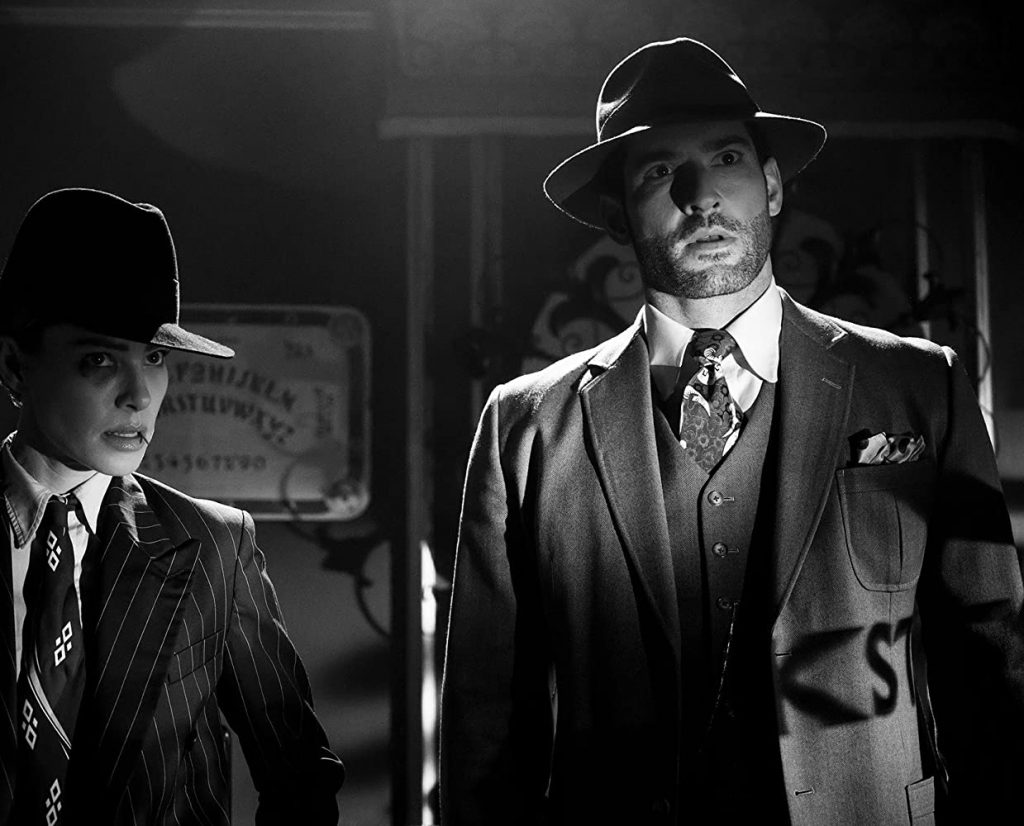
Speaking of which, the final episodes of part one of Season 5 felt incredibly rushed. As a serial killer is tracked down, and a major reveal happens regarding Ella. What’s annoying, is that you can see the trope coming from miles away — as it’s not all that cleverly executed. Making it a bit contrived. The suspects have conveniently been there the whole time for the past few episodes. And the conflicts developed for Ella as a character, make it so that everything falls into place in an overly straightforward way. Without too many spoilers I’ll just openly say: it’s somewhat lazy hackneyed writing. With a conclusion that none of it matters in relation to our main story anyway.
Instead, the story suddenly pivots back to the family. Particularly, Michael’s grand plan: that Angels self-actualize, Decker and Lucy are on rocks, and never saying, “I love you,” means the end of the world (not literally). A notion which is odd because Lucifer and Decker just started being official, so I’m not sure why the story stresses the importance of, “I love you”?
In the process of trying to build this paper-thin conflict, we also see Dan slip into evil and see the story sort of steer Maze in convenient directions meant for conflict to antagonize Lucifer. Inevitably seeing her side with evil because she learns that all along she just wanted a soul since nobody seems to love her? It’s a little too convenient and feels incredibly contrived.
However, that said: it leads to one of the coolest fight scenes of the series by far. As Lucifer fights Maze, while Amenadiel fights Michael.
It’s Okay So Far
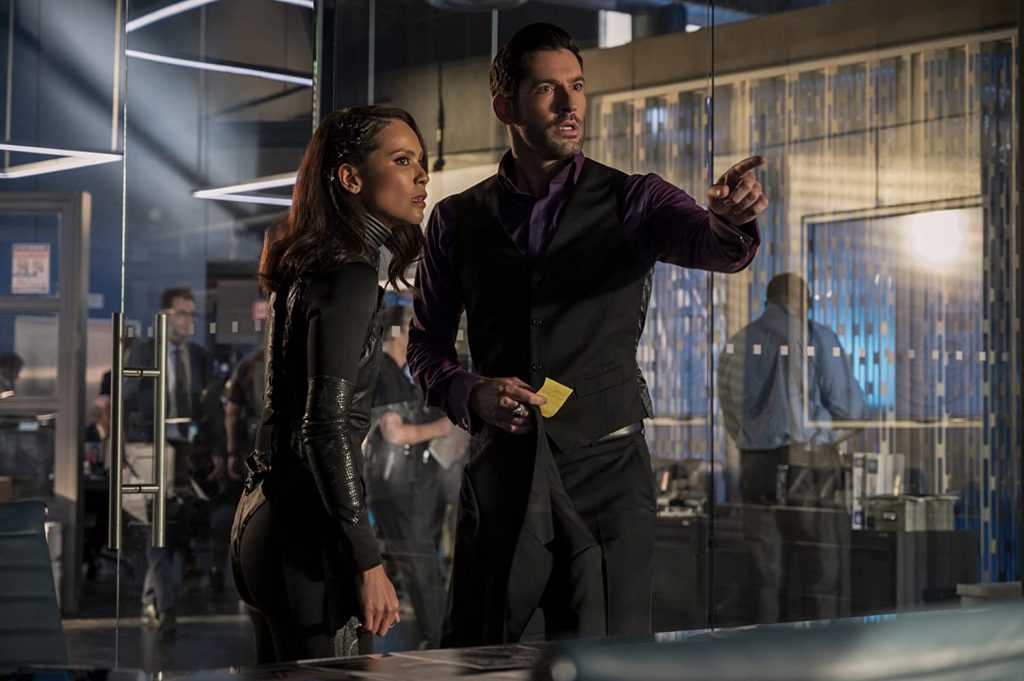
I’m not too big of a fan of the villains in this first half of the season. Michael is honestly rather boring compared to Lucifer, and his intentions are brattier than they are menacing. Which is disappointing, because the setup was intriguing yet abandoned far too early, in seeing how a doppelganger could ruin Lucifer’s life.
Probably the most interesting thing about the cliffhanger is of course: That God finally shows up in the series. And I can’t tell what’s better: that he’s black or that he’s the spokesperson for All-State car insurance.
